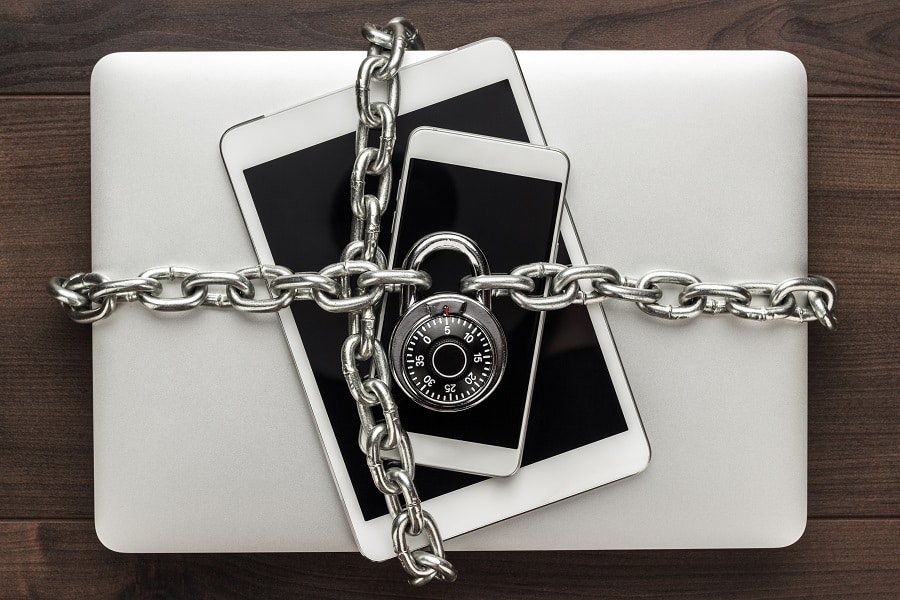People are quickly reaching a point where it’s hard to find someone who isn’t connected to social media. Whether you use Facebook, Instagram, Snapchat, or any other platforms, chances are that you have at least one account and engage in some type of activity on them. While there are certainly some beneficial aspects that can come from your active engagement with social media, there is also an element of potential downsides associated with the technology. This article will explore the different ways that intensive use of social media could be potentially dangerous and why limiting your digital consumption might be worth considering.
Contents
- 1 Social Media Can Be Addictive
- 2 Can Cause Unhealthy Sleep Patterns
- 3 Social Media Can Lead To Comparison And FOMO
- 4 Can Be A Potential Source Of Anxiety And Depression
- 5 Social Media Could Encourage Cyberbullying
- 6 May Cause Damage To Physical Relationships
- 7 Social Media Could Compromise Your Privacy
- 8 Can Make It Harder To Concentrate
- 9 Try To Limit The Amount Of Time You Spend On Social Media!
Social Media Can Be Addictive

Social media has become integral to many people’s daily lives and can be addictive. Users may find themselves compulsively checking in to their social accounts multiple times throughout the day, anticipating a new post or update from one of their contacts. They may also continuously feel the need to comment and post about different events, often without taking time to simply breathe or reflect on what is happening around them.
While having access to so much information can be stimulating and enjoyable. Such unchecked consumption can be detrimental to one’s mental health in the long run as it not only leaves you feeling depleted but makes it difficult for you to focus on tasks in your day-to-day lives, requiring deeper thought and concentration.
Taking a step back and recognizing when you become sucked into the endless cycle of ‘likes’ inflicted by social media will help you break free from its addictive grasp, allowing you to live more mindfully and enjoy more fulfilling relationships with those around you based on real, not virtual connections.
Can Cause Unhealthy Sleep Patterns

Social media can negatively affect your sleep patterns, which in turn has a major impact on your overall health and well-being. Constant checking of screens and engaging in activities such as messaging, streaming videos, and posting pictures late into the night can cause you to stay up way past bedtime. This can lead to disturbed sleep cycles due to reduced amounts of deep sleep and inconsistent wake times.
As a result, you may experience daytime fatigue, forgetfulness, mood swings, irritability, weight gain, a weakened immune system, and increased stress levels. Moreover, being deprived of healthy sleep at night often leads you to reach for stimulants like caffeine during the day to keep yourself alert and awake. In the long term, however, this does more harm than good; you must take steps to promote healthy sleeping habits before it begins to take a toll on your mental and physical health.
Social Media Can Lead To Comparison And FOMO

Social media can be a great way to stay connected with people and learn new ideas, but it often leads to feelings of comparison and FOMO (Fear Of Missing Out). You spend hours scrolling through other people’s perfect lives and are plagued by the thought that you don’t measure up. This kind of comparison can harm your confidence and self-esteem, making you feel inadequate or less than those whose lives you compare yourself to.
Feeling like you’re missing out on something spectacular or better than what you have is also harmful. It creates a feeling of anxiety because you think everyone else is living their best life while yours pales in comparison. These negative emotions can start to consume you, causing stress and unhappiness. Social media should be used for positive interactions only, as engaging in comparisons and FOMO breeds insecurity instead of happiness.
Can Be A Potential Source Of Anxiety And Depression

In today’s world, social media has become a huge part of your lives, and trying to keep up with your online profiles can be overwhelming. Unfortunately, it may also come with unwanted repercussions, as many people feel immense pressure to maintain these accounts and their content. This pressure can cause anxiety if you feel that you need to fulfill certain expectations—whether from yourself or others—and the result can be depression when this pressure is greater than what you can manage.
Too much time spent on social media increases anxiety levels and leads to negative self-talk and decreased confidence, which exacerbates depression in the long run. This is why taking a step back and evaluating whether social media is helping or hindering your mental health is essential. It’s important to remember that only positive outcomes will come out of taking care of one’s mental health and that stress should never take precedence over well-being.
Social Media Could Encourage Cyberbullying

Social media is one of the most efficient ways to connect with other users in the digital world. Unfortunately, it has also become a source of cyberbullying, which can be extremely harmful. Cyberbullying is a form of harassment or intimidation that occurs through digital means such as emails, text messages, posts on social media networks like Twitter and Facebook, or gaming.
One of the reasons why it is so easy to encourage cyberbullying via social media is its anonymity. Anonymity gives bullies a false sense of power and security that makes them feel safe to harass others online without consequences. Another factor driving the increase in cyberbullying is the wide range of platforms on which it can take place. This means that many harassing messages can spread quickly over several different mediums and easily reach hundreds, if not thousands, of users.
Cyberbullying is emotionally devastating and potentially traumatic for its victims, leading to numerous negative mental health outcomes such as anxiety, depression, or suicidal thoughts. It is essential to highlight how online communication platforms should be used responsibly and discourage cyberbullying so you can create a digital world in which mutual respect prevails.
May Cause Damage To Physical Relationships

Though social media may open you up to new ways of communication and connection, it can often result in a disconnection from the physical world around you. For instance, when constantly scrolling through their feed on different platforms, they may miss essential conversations and face-to-face interactions with friends and family. This lack of engagement can negatively affect physical relationships because you cannot authentically connect with one another.
Damage to physical relationships has dire consequences as it can cut people off from real support systems, which can potentially have beneficial effects such as reducing stress, increasing self-esteem, and providing motivation. Furthermore, having an active and present presence in your real life allows you to practice empathy by seeing things through each other’s point of view rather than just relying on bits of information shared online. Not only that, but you might be substituting meaningful interaction for posts or comments made online.
Social Media Could Compromise Your Privacy

Social media is a great way to keep in touch with friends, family, and colleagues, but it can also risk your privacy. From the information you share on social media, the average user divulges many personal details, including their location, interests, and passwords. This leaves many vulnerable to cybercriminals who could use this data to target them financially or emotionally.
Taking measures to protect your privacy when engaging on social media is essential. This includes keeping sensitive information off your profiles and only connecting with people you know. Additionally, always verify any “too good to be true” offers that appear online, as they could be malicious scams geared toward compromising your identity or making stolen purchases on your accounts. With the proper precautions and knowledge, social media can be enjoyed responsibly without putting one’s privacy at risk.
Can Make It Harder To Concentrate

Social media platforms are designed to be habitual and addicting by constantly updating interesting content such as news, sports, memes, and games. This content is designed to interrupt your regular flow of thought and cause you to procrastinate essential activities throughout the day. With the growing presence of social media, it can be increasingly challenging to concentrate on tasks at home, work, or school.
Additionally, because many social media platforms offer notifications about new updates, their ever-constant presence can easily distract you from achieving focus and staying on task with your goals. On the other hand, concentrating on essential activities leave you feeling more relaxed and motivated by helping you avoid burnout or unhealthy stress levels. It also allows you to have a clear mindset while executing responsibilities in your personal and professional life.
Try To Limit The Amount Of Time You Spend On Social Media!
To make sure you don’t fall prey to the downsides of social media, it is essential to limit your time spent on these platforms. You can do this by setting an allotted amount of time each day or week specifically for social media surfing and limiting yourself to this interval. When possible, finding other activities that can enhance your life, such as reading, exercising, or spending time with friends and family, is best. So, if you find yourself using social media too often, take a step back and make sure to use it responsibly.


